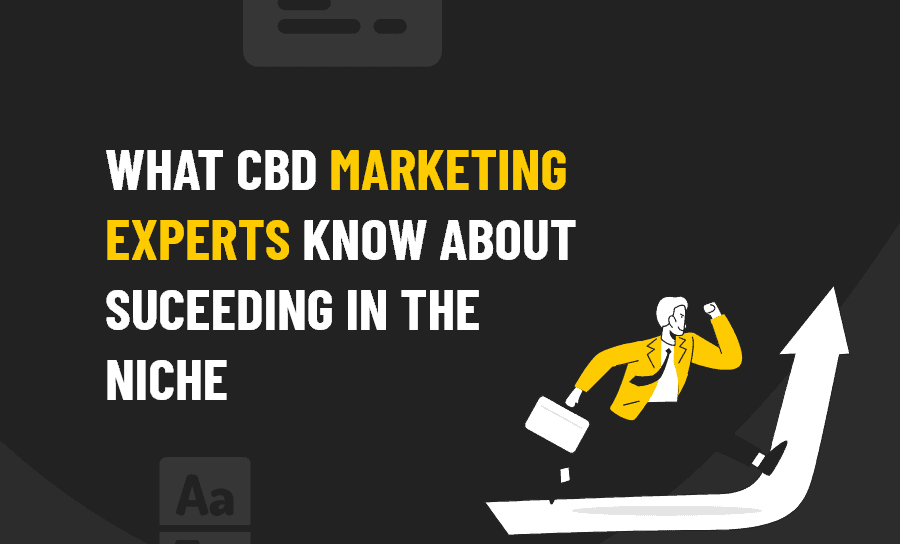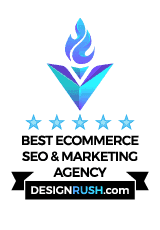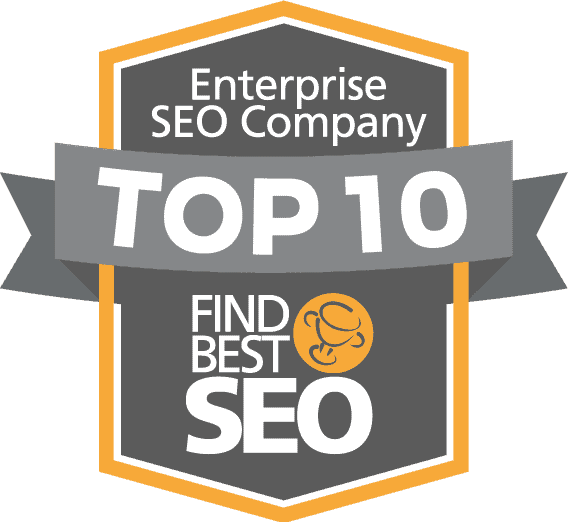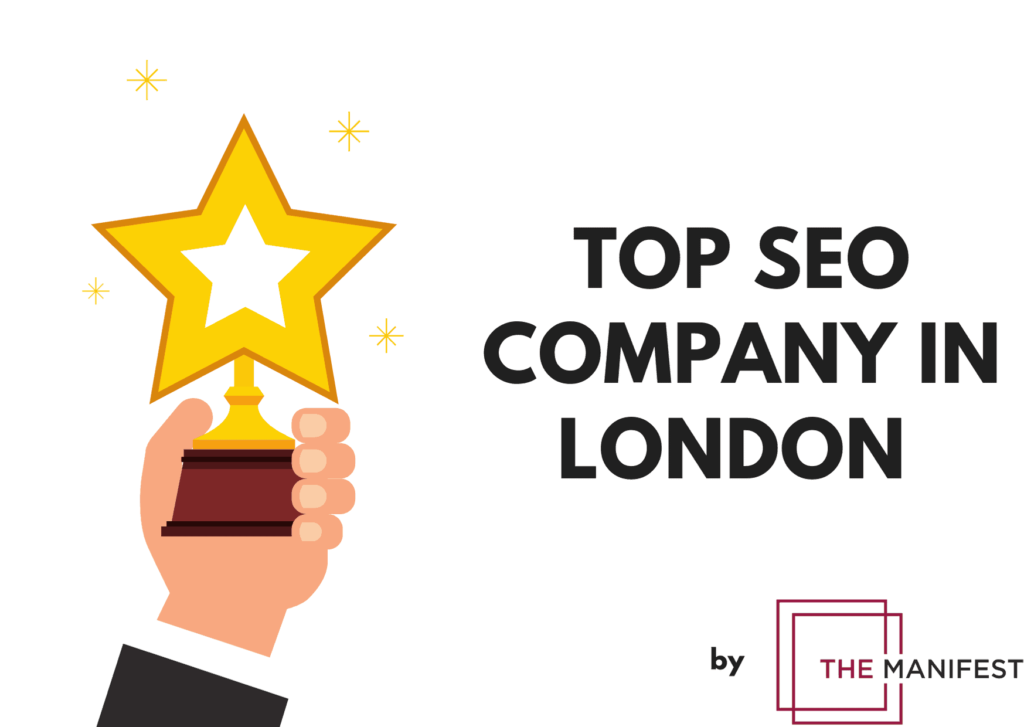It’s a rare thing when a single product – or group of products – captures the attention of global consumers in a concise space of time and becomes something of a phenomenon – but that is certainly the case for CBD.
Across the world, and especially on both sides of the ‘pond’ CBD products are some of the hottest health-focused offerings available. There are CBD oils, CBD supplements, CBD vape juices, CBD gummies, and the list keeps growing.
Hip coffee shops, like JustCBD are putting CBD in their coffee. People are cooking with it. In the US – but not the UK at the time of writing – vets are advising pet parents – people who spent a whopping $75.38 billion on pet products in 2019 – to give CBD to their furry friends. So the potential market for CBD products is huge. The challenge is, though, because CBD still lives in a rather gray area legally in most places, marketing CBD products effectively is anything but easy.
THE CBD CONFUSION CONUNDRUM
If you are reading this piece, the chances are you are thinking about trying to find a good CBD marketing agency. So, you probably have CBD products to promote. Or are thinking of getting into this booming and very lucrative market. So you probably have a wealth of knowledge about CBD. One of the marketing challenges you face is that most of the general public don’t.
CBD is, as you know, cannabidiol. The form that can be sold legally in the UK and the US, and many other parts of the world, is any that contains a minimal amount of THC and is derived from hemp plants. THC is the chemical compound that causes euphoria, aka gets people high and comes from marijuana plants. CBD derived from hemp does not produce a high, it’s non-psychoactive.
But because both THC and CBD are found in cannabis plants, and lots of people don’t understand the difference between hemp plants and marijuana plants – many of them – including some legislators – still assume it’s a ‘bad drug’.
It’s not, and, as many CBD retailers will be happy to explain to people if they can speak to them in person, it has the potential to do a lot of good for a lot of people. But that can be a difficult concept to get across.
THE LEGAL CHALLENGES
Then there are the legal challenges. And, the fact that the law is different in the UK than it is in the United States, and in some cases, different across the individual states in the US, and that these laws are changing all the time, keeping up with them all is a must. You will also need to ensure that any CBD digital marketing agency or CBD advertising agency understands them too, as something as simple as a few lines of copy in a product description or blog post has the potential to land you in legal hot water if it’s not phrased properly.
Not started your CBD business yet and wondering about those laws across various countries? The best thing to do before you do is consult a lawyer – WE ARE NOT LAWYERS – but as an experienced, responsible CBD marketing agency we do ensure that we keep ourselves informed of the legalities involved so we can do the right thing.
GENERAL CBD LEGAL CONSIDERATIONS IN THE UK AND US
In the UK, generally speaking, CBD oil is legal in the UK if it has a THC content of below 0.02% as THC is still considered a controlled substance under the Misuse of Drugs Act 1971.
To be legal the CBD must be extracted from an industrial-grade hemp strain that’s been approved by the EU (what will happen after Brexit remains to be seen) Cannabis is listed as a Class B drug under the Misuse of Drugs Act, but CBD is not listed as a controlled substance under this act.
This has led to some people believing that they can grow their own cannabis or hemp. This is not true. It is illegal to grow your own cannabis or hemp in the UK. CBD producers in the UK must receive a licence and permission from the UK Home Office to do so. So if you are getting CBD products from a third party to resell make sure you know exactly where the hemp used to make it came from.
In 2018, in the United States, the Farm Bill was enacted, which made CBD derived from hemp legal provided it is produced and used within the laid down regulations as defined by the law. Prior to that, CBD was classified as a “Schedule I” substance and is therefore illegal to use it. But, with this new law, CBD produced from hemp becomes legal if it adheres to the following requirements:
- Hemp’s THC level must be less than 0.3%
- It must comply with the distributed state-federal regulations
- Only a recognized and licensed cultivator must cultivate the hemp CBD
The Farm Bill also removed previous restrictions that inhibited the selling, transportation, and possession of CBD produced out of hemp across state lines, provided they stay within the regulations mentioned above.
As you are preparing to get into CBD, you must always remember that the 2018 Farm Bill only legalized CBD produced from hemp, not from marijuana. The latter is still illegal in all but nine states in the US.
As to other markets, you might be interested in entering, including those in the rest of the EU we’ll leave you to do the research, but we can tell you that an increasing number are allowing the sale of hemp-derived CBD products including France, Germany, Poland and more.
Before we get into how best to market your CBD business and its products, we should look at just who you are marketing to. As CBD has only recently become legal, the market is still developing, as more and more people discover the potential benefits CBD has to offer and additional research is completed.
This report from Marketwatch breaks down both 2019 figures and projections through 2024. If you don’t have the time to wade through it right now, we can tell you that it predicts that the US revenue from CBD products will increase from US$ 270 million in 2019 to a whopping US$ 2420 million by 2024.
In terms of UK revenues, the potential market is, perhaps surprisingly, even bigger. The report predicts the UK CBD market will be worth almost £1 billion (~€1.1 billion) per annum by 2025, which is huge. So anyone asking if there is potentially money to be made in the CBD product market in either country has their answer right there!
In terms of where the greatest product growth is expected, the report states that these are the three greatest areas of growth:
- Over the Counter Pharmaceuticals Industry (covering supplements and other preparations that can be purchased without a prescription)
- Food Industry
- Cosmetics Industry
Did the food industry surprise you? The fact is that CBD is a fast-growing presence in the food and beverage industry in both the UK and the US.
In tandem with the growing plant-based foods movement – did you know that Gregg’s recently stated that much of their impressive growth in 2019 was due to its line of vegan products, especially its vegan sausage roll – CBD is being added to everything from veggie burgers to bread and cakes (as well as all kinds of chocolates and sweets.) In the US, CBD coffees and ice creams are big business as are a growing number of CBD enhanced beers and sodas.
As you might have been able to deduce by now – or may know if you are already active in the CBD product space – the primary market for CBD products of all kinds is a younger one.
According to a report from The Centre for Medicinal Cannabis in the UK, all the following is true for the UK CBD market:
- The size of the UK CBD market is between 3-6 times larger than previous well-quoted estimates. The CMC research estimates that 1.3 million consumers are spending over £300M per year on CBD products.
- For comparison, the CBD market is larger than the total UK Vitamin D (£145M) and Vitamin C market (£119M) combined;
- Approximately 6 million adults have used CBD in the UK;
- 11% of the population had consumed a CBD product in the last year;
- 40% of those aged 18-42 are open to using CBD products
- Usage was higher on average among females (13%) than males (9%)
And in the US, a 2019 Gallup poll found all the following:
Again, the indication is that the biggest interest in CBD products is among those aged 18-49 (although you can see that a slightly older demographic is catching up.)
Overall it’s safe to say, at the moment, that when marketing CBD products, your audience is a relatively young one – Gen Z, Millennials and Gen X.
Now that you know who you would be targeting with CBD marketing, it’s time to look at how.
WHY SPECIALIST CBD MARKETING IS SO IMPORTANT
Why should you make specific CBD marketing a priority and work with a CBD marketing agency specifically? Here are some of the most important reasons.
EDUCATING CONSUMERS TO CREATE NEW CUSTOMERS
Going back to the Gallup poll, in 2019, 35% of the respondents said they had no knowledge about CBD products so could not say whether they would use them or not. CBD marketing offers you the chance to be the one to educate these under-informed consumers, clearing up the confusion that surrounds CBD we mentioned earlier.
People are out there actively searching for information about CBD and its use. By being the ones that provide them with that education, rather than just ‘fluff’ the chances that you will be able to convert them into your customers greatly increase.
DIFFERENTIATING YOUR BRAND.
The CBD space is bursting at the seams, with more companies and products being established on an almost daily basis. This does not mean that you should give up on your dreams of earning money with CBD products but rather learn how to stand out and differentiate your brand from the rest.
Whenever a new product hits the market – or a whole new concept like CBD use – there will be plenty of people who ‘just try it to see’. Part of the success of any CBD marketing campaign will need to convert those people into repeat customers and, even more importantly, customers who are loyal to your brand.
Any CBD marketing campaign faces, as we mentioned, a number of challenges that many other forms of product advertising does not, and there are lots of pitfalls that need to be avoided.
In standard product marketing, it’s not unusual to use flowery language and make all kinds of claims that a marketer may not actually be able to substantiate in real life. For example, a pair of jeans can be marketed as ‘slimming’ even if, in reality, they don’t do anything at all other than button.
CBD marketing is very different. While it might be tempting to boast about CBD’s potential medicinal properties and benefits to the whole world via online CBD marketing, or indeed CBD marketing, in general, it’s something that regulatory authorities on both sides of the Atlantic disapprove of and making such claims can get you into tremendous legal trouble. And maybe even kill your business altogether. That’s why it’s important to consult with a CBD marketing expert or agency before deciding on the right marketing plan.
Although it is possible to spotlight the potential medical benefits of integrating CBD into a daily health and wellness routine, it is not possible to legally advise consumers about treating their specific medical condition, disease or ailment with CBD. Only a doctor can do this, so don’t make the mistake of assuming that just because you read it somewhere, it is true.
Every single thing you say (including consumer reviews, testimonials, social media posts, marketing, and claims made on any forum where the consumer may see the product) when trying to attract buyers with an online CBD marketing campaign must be backed up by reputable sources and cited where/when necessary.
Claims must always be substantiated, credible and authentic and avoid making disease or health claims. Anything that cannot be proven simply cannot be used in your marketing materials, including in your blogs.
Social media marketing is a challenge for CBD product advertising as well. Facebook, which may seem one of the natural social media marketing avenues, given its popularity with your target market, until June 2019 Facebook forbid CBD ads due to the cannabis plant’s illegal status and previously, CBD-focused ads were blocked outright. That changed in June 2019 and Facebook now allows ads for topical CBD products – like CBD skincare – but not for things like vape juice or supplements.
In terms of pages and postings, Facebook probably won’t stop you from creating a page for your business, but if you want to keep it, you will need to make sure anything you post follows the same strict content guidelines as we just mentioned. False claims will get your page taken down, and the same is true for Facebook subsidiary Instagram.
Twitter won’t accept ads for CBD products, but they will allow you to create a page. Again, be careful what you post though, to avoid it being taken down. We should also mention that regulating authorities watch social media as closely as they do vendor websites, so any questionable content posted may attract their attention and lead to fines or worse.
By the way, Google PPC is out as well right now. Google currently does not allow you to run an Adwords campaign for CBD products of any kind. It should be noted Google recently asked a number of companies in the CBD space to participate in a trial run for CBD advertising on its platform, but the results are, and any possible rule changes, are yet to be revealed.
We’ve been through much of what you can’t do when promoting your CBD products, so, given the restrictions you’ll be working under, what can you do? What CBD marketing tactics are both legal and effective. Here’s a look at some of the most important.
As we mentioned earlier, a lot of people are looking not just for CBD products but also for information about CBD in general. Reliable information. This means that one of your biggest CBD marketing strategies should revolve around organic SEO (and this is exactly what any CBD marketing would tell you to start with).
Again though, this is where you’ll need to tread carefully, and your best bet really is working with an SEO agency with proven CBD marketing experience. Most of the SEO basics are the same as a standard eCommerce or local retail SEO campaign, but there are still caveats and restrictions that have to be kept in mind at all times.
Certain keywords are keywords, for example, that regulatory authorities watch in an attempt to find the bad practices and illegal advice they don’t want to see. A smart CBD SEO campaign won’t avoid these, though, it will just ensure that the content that ranks is valuable and legal.
Some CBD product concerns cry foul here as they, rightly, say that they have seen plenty of questionable content online posted and created by others. Indeed, you might have read claims online hailing CBD as a miracle cannabinoid that can be used to combat a wide scope of medical conditions, diseases and ailments. But unless it is valid scientific research, we can almost guarantee that you won’t see it for long, as it will be taken down.
So, we can’t say it often enough: it is imperative that you hold off on making any health or medical claims; otherwise every penny spent on CBD SEO will go to waste.
Link building is important for the success of any SEO campaign, but CBD SEO link building needs to be approached carefully. Any links built need to be of high quality, and from sites that are as mindful about the legalities of CBD marketing and information dissemination as you are.
You should also be careful about who you link to as well. Linked content can be considered part of your advertising materials. Linking to articles, scientific studies, and testimonials does not shield or remove you from the claims that are made on the linked content. Commercial use of scientific publications to promote the product’s sale, including simple references to scientific studies or general research, discussing potential health benefits may still be considered to be drug claims made about the product. So do so very carefully.
Content is the bedrock of good SEO and of marketing in general. CBD content marketing is, for all the reasons we have already covered, trickier, because the standards of the content you create need to be considerably higher than that created to promote, let’s say, that pair of jeans we mentioned earlier. Jeans that, somewhat unfairly, you can probably ‘get away’ with making all kinds of claims about.
Done right though great content can be one of your CBD based business’ biggest assets. Not only can it bolster your CBD SEO efforts, but it can also be used to establish you and your brand as a knowledgeable, reputable source of information. But, given the restrictions on making medical claims just what can you talk about?
As an experienced CBD marketing agency in London, we make all the following suggestions to clients as appropriate, but there are more:
- Carefully researched educational pieces about CBD, including the differences between legal CBD and other somewhat related cannabis products that are considered illegal.
- Helpful pieces detailing the best ways to utilize your products, for example, if you sell CBD vape juice how, and how often, customers should vape.
- Fun lifestyle pieces that can be framed to include your product without making any medical claims or offering any form of medical advice. For example, great coffee recipes that include CBD oil.
- Carefully researched news pieces that detail all the legalities surrounding CBD, as the laws are evolving all the time, as are the results of an increasing number of research studies that the legalization of CBD has made possible.
Customer reviews are crucial to the success of any retail business, and that’s true of CBD products and businesses and perhaps even more so. As many people are new to CBD hearing from other users who have already tried your products will be something that is important to them and is likely to play a big part in their purchasing decision.
Encourage customers to leave a review – with a discount on a future purchase perhaps – and if at all possible get them to review your products on both your website and on other reputable sites. The more positive reviews that consumers, regulatory authorities and yes, even search engine bots see the better; better for your sales, better for the positioning of your website in the SERPs and better for your reputation as a trustworthy source of CBD products as well as information.
Social media marketing is something that retailers use a lot, often with varying success. For some companies, social media helps boost sales, but often that is only thanks to social PPC advertising, something that is not really easily available for CBD products, as we detailed earlier.
What you can use social media for, however, is to help build your brand and, hopefully, drive a little extra traffic to your website. Make use of great imagery of your products, and those products in use in ‘real-life’, on image-heavy social media sites like Facebook and Instagram. Boost conversions with social contests, and if you make use of those properly, you can gain some beneficial user-generated content, something that is always a plus.
Just as certain types of CBD products outperform the others, there are certain types of CBD products that typically perform best on social media:
- CBD oils
- CBD-infused beauty products
- CBD/hemp-based body creams
- Pet products (in the US, they are not yet allowed in the UK)
- CBD-infused edibles
We already see all kinds of CBD brands partnering with influencers. Not only does influencer marketing act as a buffer between your products and the stringent regulations, but it also yields a higher engagement and better ROI than traditional ads (which, for the most part, you can’t use anyway)
Besides boosting interactions, you can target the following outcomes with influencer marketing for CBD products:
- Grow your brand visibility and reach more prospects
- Leverage the user-generated content influencers create
- Generate positive reviews from influencers
- Find prospects who are interested in health and wellness
- No worries about getting your content removed
- Build a network of brand advocates
- Grow a list of real followers for your brand pages
But, you cry, I can’t afford to work with a serious Instagram or Snapchat, or even Youtube influencer, so CBD influencer marketing isn’t going to work for me. But that’s OK.
Partnering with micro-influencers is one of the most effective ways to spread the word for small CBD businesses. You just need to pick them carefully.
Focus on influencers who have mastered the art of visual storytelling. These are influencers who can create the type of UGC you actually want to share. Besides, great stories are more engaging than a basic product post. But we are not talking about pretty people (although that won’t hurt)
What we do mean are people who are good photographers – and thanks to some amazing smartphone camera technology those are easier to find than you might think – or good orators. People who are willing to showcase your products in a unique way. And, as you are working with micro-influencers, it probably won’t cost you more than a few extra discounts and a handful of free products. Here are some good examples from Instagram of what we mean.)
Finding these people can be as simple as offering up the opportunity to be featured as a brand ambassador to your current customer base. The primary market for CBD is a younger one, so this will appeal to a lot of people.
If you didn’t realize it before, hopefully by now, you know how hard it can be to market CBD products successfully and build a CBD brand that is trustworthy and respected. Not to mention time-consuming.
Very few marketing agencies have experience in the CBD space yet, so many of them, while they might be whizzes at standard retail SEO probably won’t be able to help you much and may, if they don’t understand the challenges of CBD marketing – especially the legalities – get you and your company into trouble.
From helping you create content that is legal and engaging in finding the best and most effective linking opportunities to executing a stellar SEO campaign, the team at Pearl Lemon can do it all. If you are in the CBD space – or are thinking about getting into it – give us a call. Let’s discuss what we can do for you and why Pearl Lemon is a great choice for this niche, no matter what product you sell.








